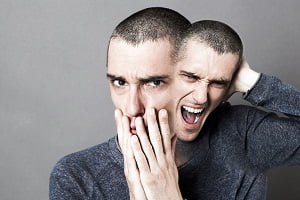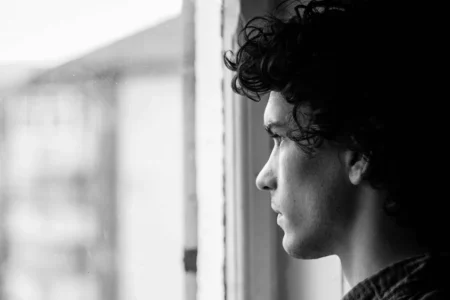How Is Schizophrenia Diagnosed?
- Updated on: Nov 25, 2024
- 3 min Read
- Published on Apr 19, 2021

Diagnosis of Schizophrenia
There is currently no lab test that can completely diagnose the disease – schizophrenia. A psychiatrist usually diagnoses it based on clinical symptoms and behavior of the patient. Physical testing is done but its goal is primarily to rule out several other conditions such as seizure disorders, metabolic disorders, thyroid dysfunction, brain tumor, etc. These conditions can sometimes have similar symptoms. What is Schizophrenia? Read about it here.
Researchers are assessing possible physical diagnostic tests such as blood test and imaging etc for schizophrenia diagnosis. But these are still in trial or early stages and are not yet widely used as established procedures. We may likely use some of them in future.
If you’re worried that you may be developing symptoms of schizophrenia, see a psychiatrist as early as possible. These symptoms, however, can occur due to other brain conditions also.
Your doctor will ask about your symptoms to confirm if they’re not due to other diseases or conditions. Read about the signs and symptoms of schizophrenia.
Deciding whether it is Schizophrenia
The first thing your doctor will do is a psychological assessment of the condition and a complete medical exam. The doctor will try to study the history of symptoms over about last several months to rule out other possible conditions. Several other related conditions such as bipolar disorder, seizures, etc may show similar signs.
In some cases, your doctor will do certain blood tests to check if there is any drug or alcohol abuse.
In order to rule our structural abnormalities of brain and brain tumors, he or she may ask you undergo an imaging test such as a CT scan or an MRI.
Most related diseases for which your doctor may want to evaluate the symptoms are:
- bipolar disorder (manic-epression) – people with this problem experience cycles of elevated moods (extremely excited behavior) and deep depression. Some people also experience hallucinations and hear voices.
- schizoaffective disorder – it is a form of schizophrenia because its symptoms are similar to schizophrenia and bipolar disorder. It may occur just once in a person’s life, or come and go in cycles and can be triggered by stress events.
- Major depression
- Catatonic or coma-like daze
Making the Diagnosis
Diagnosis is schizophrenia is considered if you have the following key conditions and signs persist for one or more months, with at least two symptoms occurring most of the time:
- Delusions
- Hallucinations
- Disorganized speech or thoughts
- Hearing voices
Getting the diagnosis as early as possible can improve the condition of a patient and the illness can be managed better thereby increasing the quality of life of the patient and family members. If a person gets proper care, he is likely to do better. Care not only includes medication but psychotherapy and supportive care too. Read about the schizophrenia treatment options.
Getting the treatment early can improve the chances of a partial or complete recovery by preventing further damage to the brain or other organs.
Sometimes, a person with acute schizophrenia refuses to seek help during an episode. It is the responsibility of the nearest relatives that a mental health assessment is carried out. If the symptoms worsen, you should contact emergency department of the health clinic.
Diagnosis of Children
It’s particularly very difficult to diagnose schizophrenia in children and teenagers because many of the first signs of schizophrenia in young people are typical problems in this age group. These symptoms may include such as bad marks in schools, sleeping too much, withdrawal from friends etc. But schizophrenia is much more than that and requires a complete diagnosis and expertly evaluation of the symptoms.
Children with schizophrenia require urgent care. If a child or a young person experiences the first episode of schizophrenia, he or she should be immediately referred to an expert psychiatrist or a mental health service. The mental health service should have a consultant psychiatrist trained in child and adolescent brain health.
Mental health services consist of various types of mental health professionals who can support people with such complex mental health conditions.












